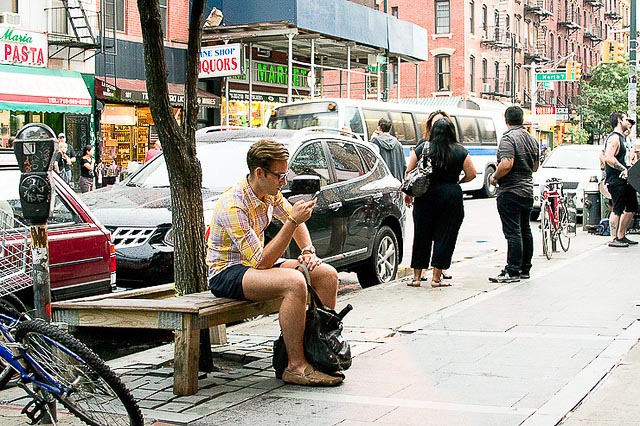The Internet is rife with calls for how communities can cater to Millennials: they don't like to drive, they love cities, they want interesting workplaces, and they're looking for different kinds of careers.
And, despite some common assumptions, they want to own homes.
But imploring cities to build more housing for Millennials isn't about pleasing the young generation, says Dowell Myers, a prominent demographer with a national reputation.
He cares about what failure to do so would mean for everyone else.
"The reason I worry so much about Millennials - it isn't for their own sake," said Myers, a professor at University of Southern California. "It's their impact on everyone else: If we don't build apartments, they gentrify other neighborhoods."
And, he warns, the fate of Millennials can affect Baby Boomers in particular.
"If we don't Millennials in as homebuyers, there won't be enough buyers for the Boomer sellers we expect to see in the future," Myers said.
His point, and the partial subject of forthcoming research with the Lincoln Institute of Land Policy, is that a healthy housing market needs to meet the specific needs of young, would-be home buyers.
"The housing market rests on the shoulders of incoming new households," Myers said. "They're the force that drives housing demand."
One finding that's particular telling, he argues, is the under-delivery of apartments and condo units since the 1990s, especially in California. It's this lack of small, dense and relatively affordable housing that's led to dynamics like so-called hipsters gentrifying formerly Latino neighborhoods in north Los Angeles.
In the 1960s and 1970s, multifamily housing units accounted for nearly half of all new homes in California, Myers said. Now, despite the emphasis on the need for dense development, it's between 20 and 24 percent.
"One obvious failure that's been happening is the failure to plan for enough multifamily housing," he said. "Activists will say we have unprecedented construction, but they ignore we had a lull for 15 years. So these 30-year-old activists say it's unprecedented, and it isunprecedented - but only in their limited experience."
Myers also sees big problems coming from Millennials' inability to begin their homeowning career.
"You need to cultivate new home buyers," Myers said. "You need to have a balance of new and old, and we're way out of whack."
The lack of young people who are buying homes and "starting their homeownership career" means they won't be in a position to buy the homes of Boomers, many of who will soon be looking to sell their family homes to prepare for retirement.
Though the recession is partly to blame, Myers said, today the trend hasn't reversed as extensively as it should have. Local jurisdictions could do more to stimulate homebuilding to take care of the need for more multifamily housing, Myers said. He also believe the federal government could do more to create homeownership programs for Millennials who are interested in entering the market.
"Because of what preceded the recession, people are gunshy about promoting homeownership," he said. "The problem is that policy tends to be either green light or red light. We need to get back to the standards from before the bubble - a nice productive period when lending was responsible. But frankly, it's important not to shut Millennials out of the market so they can get started."

